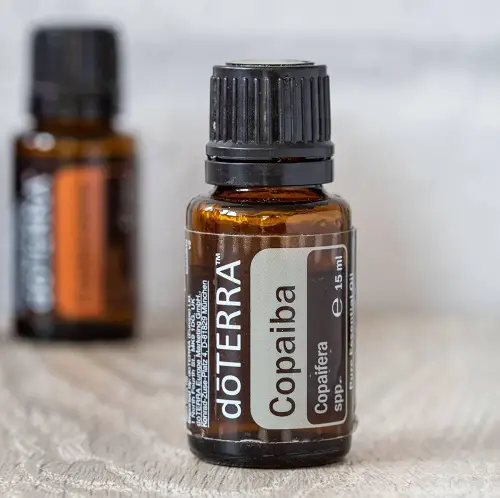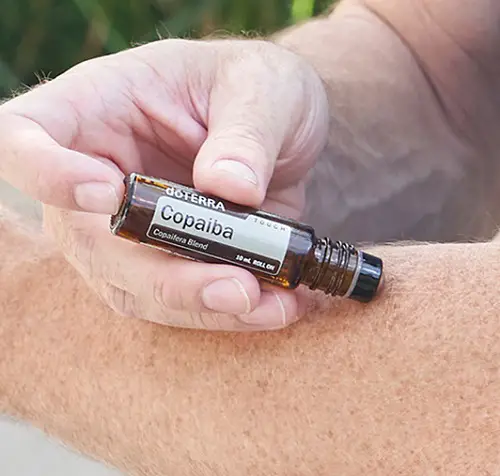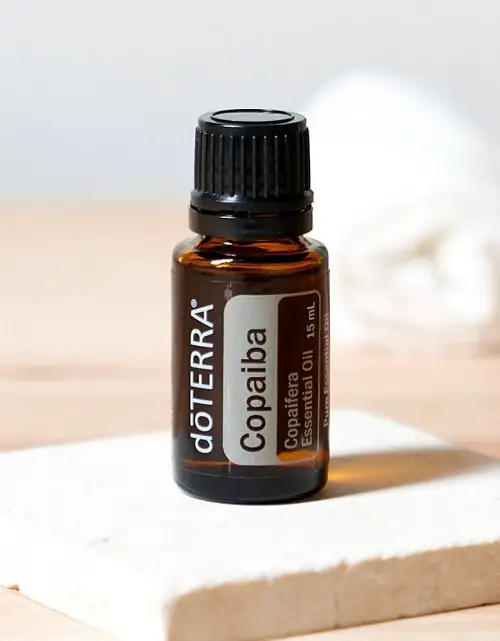Research shows that age-old Copaiba oil is extremely beneficial even today. Why miss out on these Copaiba Essential Oil Uses?

Copaiba oil is a resin that is quite commonly available in pharmacies and natural health stores in the form of capsules. It has been used in traditional medicine for centuries. It has been in use since 1625 for various health concerns such as chronic cystitis, bronchitis, hemorrhoids, and chronic diarrhea. To learn more about copaiba’s essential oil uses, keep reading!
Copaiba Essential Oil Uses
1. For Respiratory and Digestive Issues
Copaiba oil strengthens the immune system against various digestive and respiratory issues. However, it must be used only after consulting a licensed medical professional or an herbalist.
For a concoction that can help you with digestive and respiratory issues, mix just one drop of copaiba essential oil in a glass of water or a cup of tea. If you are dealing with inflammation from respiratory issues or an autoimmune disease, you can also diffuse a few drops of copaiba oil and inhale the scent twice or thrice daily. Simple, right?
2. Help Treat Skin Conditions and Inflammation

Copaiba essential oil can help treat various skin problems, such as psoriasis or dermatitis. But that’s not all! It can also help with wound healing and fungal skin infections. All you have to do is apply diluted copaiba oil topically to your skin, especially in the areas that need to be treated.
Dilute the oil with carrier oils like jojoba, avocado, almond, and grapeseed oil in a ratio of three to five drops of copaiba in an ounce of carrier oil. You could also use it as a compress or as part of lotion or cream.
A 2017 study concluded that copaiba oil’s anti-inflammatory properties act as a powerful antioxidant in arthritic people and could help reduce inflammation. Moreover, it can also be great for treating skin inflammation like acne as it releases beta-endorphins (hormones linked to happiness) when applied to the skin.
Pro Tip: Always perform a patch or allergy test and wait for at least 24 hours on a small, clean area of your skin before using copaiba oil to treat skin conditions.
3. Helps Treat Flu-Like Symptoms
Got a bad cough? Try Copaiba oil. When inhaled, it can help with cough, colds, flu, and bronchitis. You could also take steam with copaiba oil to relieve your symptoms.
Just mix in 3-4 drops of oil with a liter of boiled water and pour it into a basin. Then, cover your head with a towel and a container. Tilting your head over the basin, inhale the steam as deeply as possible for at least 10 minutes daily. Rinse your face in cold running water once you’re done.
Note: Do not bring your face too close to the steam, or it might burn your face.
4. Can Help Prevent Liver Damage
This 2013 research study shows how copaiba oil can help reduce liver tissue damage that is generally caused by usual painkillers such as acetaminophen. Though this was an animal study, it did show quite positive results.
But what is really noteworthy is that copaiba oil was best used as a preventative measure before administering the painkiller. Don’t try it after the painkiller, though. When used after the painkiller administration, copaiba oil was shown to increase bilirubin levels in the liver, which was undesirable. You should also benefit from these cassia oil uses.
5. To Help Boost Oral or Dental Health
Before booking an appointment with your dentist, why don’t you try using copaiba oil? In a 2015 study, a root canal sealer made with copaiba oil resin was found to be a “promising material” for dental use, thanks to its biological compatibility with living cells, anti-inflammatory properties, and reparative nature.
Another study published in the Brazilian Dental Journal found that copaiba oil could also be effective in inhibiting bacterial growth of Streptococcus mutans, which is well known for cavities and tooth decay. Thus, you can also easily incorporate copaiba oil into your oil-pulling routine!
6. Natural Pain Reliever
Scientific research has shown copaiba essential oil to have pain-relieving properties. It can help block the reception of pain stimulus in our nerve cells, making the oil quite helpful in treating conditions like arthritis, as pointed out in a 2017 article. Its anti-inflammatory properties also help with pain management, having similar effects as morphine.
If you have joint pain, you could use a mix of 7 drops of copaiba and 5 drops of black pepper essential oil diluted in a tablespoon of jojoba oil. You can also use this blend for headaches.
7. To Ease Tension and Worry
Though there are not many studies to prove it, you will surely find the scent of copaiba essential oil quite soothing. Its sweet, woody fragrance can help ease all the worries and tension after a long work day and is an excellent option for finally unwinding before bed.
A 2022 controlled trial also concluded that the scent of copaiba oil had beneficial effects on reducing anxiety.
When using this oil through a diffuser, you can mix it with cedarwood, lemon, lemon, orange, clary sage, vanilla, ylang-ylang, or rose essential oils for an even more beneficial blend.
Risks and Side Effects
A little knowledge is a dangerous thing, so you should know about the risks and side effects of copaiba oil as well.
- Copaiba oil can lead to skin sensitivity and allergic reactions. This is why it is important to always dilute it with a carrier oil like coconut or almond oil before using it topically. When using it on the skin for inflammation, make sure it has only a 3% concentration against the carrier oil.
- Always perform a patch test with diluted copaiba oil on a small area of your body before using it regularly. When using topically, remember to avoid contact with eyes or any other mucous membranes. If you get a reaction, discontinue use immediately and consult a doctor.
- Avoid using this essential oil if you are pregnant or nursing or if you have a pre-existing medical condition and are currently taking medication. Lithium, often present in several prescription drugs or over-the-counter medications, is known to interact with copaiba. To avoid any side effects, remember to always consult a licensed medical professional before using this oil under such conditions.
- You must keep the copaiba essential oil away from the reach of children and pets, as even a slight ingestion of undiluted oil can lead to vomiting, stomach pain, diarrhea, tremors, sleeplessness, and groin pain. Touching undiluted oil can cause itching and redness.
That’s it! Make the most of these copaiba essential oil uses, and let us know how it went for you in the comments below!


